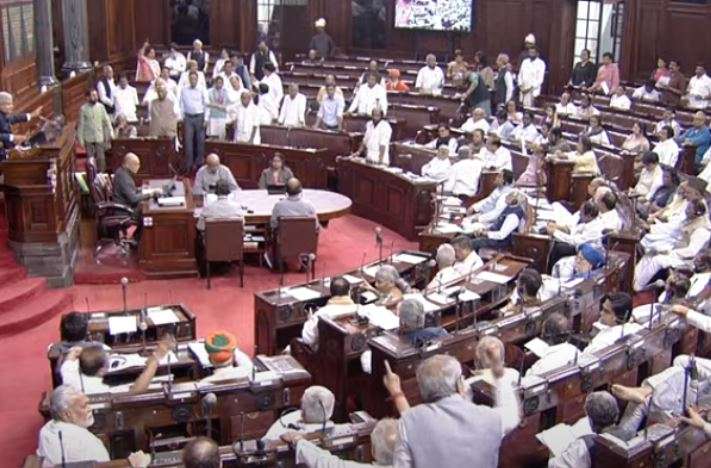-By Neha Singh
The Monsoon Session of the Rajya Sabha has been facing disruptions and protests due to differences between the Opposition and the government regarding the discussion on the Manipur situation. The Opposition has been demanding a detailed discussion on the issue, while the government has been urging for a more concise debate. This clash of opinions has led to frequent disruptions and protests within the Rajya Sabha, hindering the progress of other important legislative matters.
One of the major reasons behind the disagreement lies in Rule 267 of the Rajya Sabha rulebook, which the Opposition contends should be invoked to discuss the issue. However, Rajya Sabha Chairman Jagdeep Dhankhar has been rejecting it continuously. However, the government has proposed a short-duration discussion under Rule 176 on Manipur situation.
A delegation of INDIA parties shall meet the President of India, today.
We will brief her on the situation on Manipur, after the visit of our MPs in state.
Given the sensitivity of the Manipur issue, we demand a discussion under Rule 267 which is followed by voting.
1/3 pic.twitter.com/5vo25zsrES
— Leader of Opposition, Rajya Sabha (@LoPIndia) August 2, 2023
What are Rule 176 and Rule 267?
Rajaya Sabha has specific rules, such as Rule 267 and Rule 176 of procedure. These rules regulate the conduct of business and allow Members of Parliament (MPs) to raise and discuss important issues for discussion and debate inside the house.

What is Rule 267?
The Rajya Sabha’s Rule 267 allows suspension of rules on the day’s agenda to debate on an urgent matter with the Chairman’s approval.
This suspension under Rule 267 is to facilitate a debate on any issue that requires urgent attention.
For such suspension, MPs must give notice before 10 a.m. on the day they seek suspension.

What is Rule 176?
On the other hand, Rajya Sabha’s Rule 176 is another rule of procedure that allows discussions on any topic but for a short-duration. These discussions under Rule 176 do not last for more than two-and-a-half hours.
Also, Rule 176 does not require a formal motion or voting process like Rule 267.
During such discussions, the MP who has given notice may make a short statement, and the Minister shall also reply shortly.
Like Rule 267, the Chairman can prescribe a time limit for speeches during such discussions if necessary.
In simple terms, Rule 267 is invoked to suspend rules for urgent debates, while Rule 176 facilitates short-duration discussions without any formal motions or voting.
WATCH:
Find latest news from every corner of Northeast India at hubnetwork.in, your online source for breaking news, video coverage.
Also, Follow us on-
Twitter-twitter.com/nemediahub
Youtube channel- www.youtube.com/@NortheastMediaHub2020
Instagram- www.instagram.com/nemediahub





